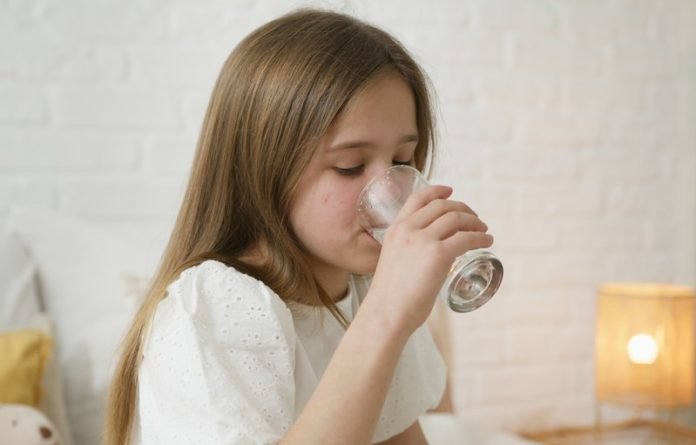
Scientists at UCLA Health have conducted a new study linking lithium in drinking water with a higher risk of autism spectrum disorder in the offspring of pregnant women.
This research suggests that naturally occurring lithium in household tap water may be an environmental risk factor for autism.
The study is believed to be the first of its kind to make this connection.
The team explained that any drinking water contaminants that may affect the developing human brain deserve intense scrutiny.
Lithium compounds have long been used to treat depression and bipolar disorder because of their mood-stabilizing effects.
However, there has been debate about the safety of taking lithium during pregnancy, as there is increasing evidence that it is associated with a higher risk of miscarriage and cardiac anomalies or defects in newborns.
Ritz became interested in the possible connection between lithium and autism risk after finding little research in humans about how lithium affects brain growth and development.
Experimental research indicated that lithium, which is among several naturally occurring metals often found in water, could affect an important molecular pathway involved in neurodevelopment and autism.
Researchers analyzed lithium levels in 151 public waterworks in Denmark, representing the water supply for about half of the country’s population.
The study examined 12,799 children diagnosed with autism between 1997 and 2013 and compared them to 63,681 children who did not have an autism diagnosis.
As lithium levels increased, so did the risk of an autism diagnosis, with the highest quartile associated with a 46% higher risk compared to the lowest quartile.
The researchers found that the association between lithium levels and autism risk was slightly stronger for those living in urban areas compared to smaller towns and rural areas.
The study also controlled for maternal characteristics, socioeconomic factors, and air pollution exposures, all of which have been linked to increased risk of autism in children.
The researchers concluded that the results of the study are based on high-quality Danish data but need to be replicated in other populations and areas of the world.
The study underscores the need for further research on drinking water contaminants that may affect brain development in children.
At this time, there is no known way to prevent autism. Autism is a complex disorder and researchers are still studying what causes it.
Some risk factors for autism include genetics, environmental factors, and maternal health during pregnancy.
However, there are things parents and caregivers can do to help support a child with autism and promote their development:
Early intervention: Early diagnosis and intervention can help children with autism learn important skills and improve their communication and social interactions.
Therapy: A variety of therapies such as occupational therapy, speech therapy, and behavioral therapy can help improve a child’s symptoms.
Support: Parents and caregivers can seek support from organizations and groups that specialize in autism to connect with others going through similar experiences and find helpful resources.
Healthy lifestyle: Maintaining a healthy lifestyle during pregnancy and for children with autism can also be helpful. This includes eating a balanced diet, getting regular exercise, and reducing exposure to environmental toxins.
It’s important to remember that each child with autism is unique, and what works for one may not work for another.
Working closely with healthcare providers and educators can help create an individualized plan that meets the specific needs of each child.
If you care about autism, please read studies about a new cause of autism, and vitamin D could help lower the risk of autoimmune diseases.
For more information about health, please see recent studies about rare blood clots after COVID-19 vaccination, and gut health plays a role in autism.
The study was conducted by Beate Ritz et al and published in JAMA Pediatrics.
Copyright © 2023 Knowridge Science Report. All rights reserved.



